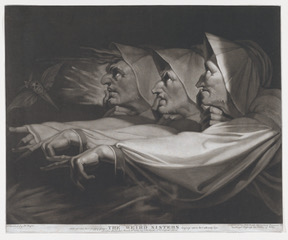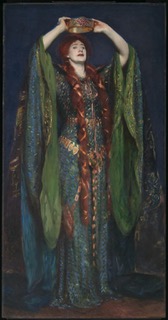By Dr Gemma Miller, Department of English and Globe Education
The Shakespeare Academy has been running at King’s for the past three years and I am very proud to have been involved from its inception. In 2017-18 we reached over 350 Widening Participation students, continuing to develop close partnerships with teachers and pupils at eight London state-funded secondary schools, from Key Stage 3 to GCSE. We’ve also run Teachers Days with the London Shakespeare Centre.
My role as administrator and workshop leader involves liaising with the schools, creating the programme for the Academy study days, supporting my colleagues in preparing individual sessions and delivering workshops myself. I am particularly passionate about inclusive access to education: my brother and I were the first in our family to obtain degrees. I also believe that engaging with Shakespeare in an interactive and creative way can help to break down perceived barriers by making the plays seem more accessible.
All ‘national curriculum’ students study Shakespeare (two plays at key stages 3 and at least one play at key stage 4). Many of the pupils we work with are from Black or Ethnic Minority backgrounds, or come from families where their parents or carers have not attended university. We give these students access to university-style learning to give them a taste of what they can expect. This makes Shakespeare’s plays a valuable common currency to reach groups who are under-represented in tertiary education. Also, plays such as Macbeth and Romeo and Juliet deal with important social and political issues – power, love, inter-generational conflict, gang warfare – that are still relevant today. The plays are useful tools for thinking about wider social concerns that are universally recognisable.

How can students engage with the ‘difficulty’ of Shakespeare?
We encourage pupils to engage creatively with the plays through activities that the teachers simply do not have the time to carry out. Students are asked to bring their own experiences to bear on the texts, adapting and revising them for the twenty-first century. We have had a workshop with a Globe actor as well as encouraged poster presentations and making storyboards for a trailer. Structured debates have also worked remarkably well, particularly dividing the students into two groups and asking them to argue whether Macbeth or Lady Macbeth is more at fault.
Students relish the opportunity to read and respond to the ambiguities of the texts in different ways. It encourages them to perceive the multiple possibilities for interpretation that Shakespeare’s texts allow…
The more students can engage with the silences, gaps and ambiguities, the more they can interrogate Shakespeare’s writing practices and inconsistencies, the more they will find to stimulate their interest and creativity. One of the ways in which we encourage them to do this is by approaching the plays as performance texts, and therefore to consider where there is room for interpretation and debate. Using the question of textual ambiguities, we talk to students about early modern playing practices as a collaborative enterprise. This can then open up into a discussion about the repertory system, the different quarto and folio versions of plays such as Hamlet or King Lear, and the various playing spaces. Throughout, students are encouraged to regard the text as a contingent and unstable document, rather than an authoritative, monolithic text.
Questions that open up the interpretive possibilities of the plays

When reading and performing Macbeth, students are asked to think of:
What happens to the Macbeth baby?
Does Banquo’s ghost really appear or is he a manifestation of Macbeth’s ‘heat-oppressed brain’?
What happens to Lady Macbeth during the long period of her absence from the stage?
Does Lady Macbeth kill herself or die from some other cause?
These were questions that many of the students had not considered before and we were impressed with how they were able to interrogate their own assumptions. The question of Banquo’s ghost led to a particularly lively debate. It encouraged students to question the agency of the witches and the theme of fate versus human will. The mystery of the Macbeth baby led to a discussion about the pervasive image of the child in the play, and I was surprised with the way in which students were able to recall quotes such as ‘naked new-born babe’ and ‘none of woman born / Shall harm Macbeth.’
Writing creatively about Shakespeare: a route to understanding
Students also engage with the texts through creative writing, imagining what characters might be thinking during the silences and rewriting the text to conform to modern styles of communication. I have found that students in Years 9 to 11 respond particularly well to these activities. Tasks that take Shakespeare’s text from the page and relate it to the students’ own life experiences have proved to be the most successful in terms both of engaging students of all abilities and of creating dialogue between the students, teachers and workshop leaders.
Students consider what the different models of leadership presented in Macbeth are and how we can relate them to those of contemporary world leaders. Again, how can we interrogate the absence – and implied mental deterioration – of Lady Macbeth? Here, we ask students to consider what she might have been thinking between her final scene with Macbeth and her sudden appearance in the sleepwalking scene.
We were so impressed with some of the creative responses to Macbeth from our summer 2018 workshops that we’d like to showcase some of the students’ work on a dedicated blog post here on King’s English. Read these brilliant pieces written by Years 9 and 10 students who imagined what Lady Macbeth might have written if she had left a suicide note.

How have students responded?
We have been really pleased that teachers have reported great engagement in the activities by pupils who tend to not do so well by curriculum metrics, for instance, pupils with English as an additional language. One student in particular was having difficulty working with the language of the play. However, once we introduced visuals such as clips from recorded performances, trailers for films and images of witches, this student, along with others, was able to engage more enthusiastically.
The numbers suggest that our approach is working…
67% of all students report that they feel more confident about their knowledge of Shakespeare and have a better understanding of the context in which his plays were written. 64% of all students report that they have developed their critical skills through the workshops. 79% of all students reported that the workshops encouraged creativity and personal expression.
I was particularly happy to read the feedback of one year-11 student who said that the workshop on Macbeth ‘encourage[d] others to have a voice and present themselves to everyone in a different and academic way.’
But we are not complacent. We aim to build upon the work we have done to reach more students and to find new ways to inspire and engage the students. Ideas we have yet to test include working with cue scripts, which would encourage the students to consider early modern rehearsal and staging practices, and recording scenes as through for a radio production. This would explore how Shakespeare uses the powers of language. Our ultimate aims are to bridge the gap between schools and King’s, and to help students to believe that Shakespeare is something that they can enjoy, criticise and make their own.
See the creative writing by Shakespeare Academy students here.
Featured image is from a ‘Shakespeare in Action’ summer camp, where children perform Twelfth Night. Photograph © Shakespeare in Action
You may also enjoy:
Lucy Monro reflects on investigating early modern verbatim theatre
Hailey Bachrach discusses ‘gender blind’ casting at Shakespeare’s Globe
Rachael Nicholas on the Shakespeare MOOC run by the department in 2016
Blog posts on King’s English represent the views of the individual authors and neither those of the English Department, nor of King’s College London.

